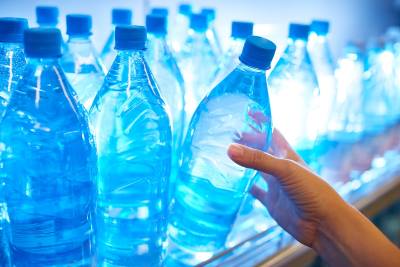Green Products
Choosing the Best Water Bottle: Consider These Facts
Drinking water is one of the things that, unfortunately, most people do not do well. Most studies show that people do not consume the recommended eight cups of water a day, but many people instead drink sodas or other beverages.
That means many people are continually dehydrated.
So if you have made the commitment to drinking water, congratulations. It’s the right thing to do for your health.
However, another issue will eventually come up. Because most of us are always on the go, you likely will use water bottles to get your daily intake. But a simple Internet search will bring up all kinds of scary things about water bottles and how they can damage your health.
So the question becomes – which water bottle is right for you?
You have a few choices when it comes to water bottles: plastic, aluminum, glass and stainless steel. Here’s a look at the various choices.
 This is what most people drink from, and it’s the one with the most issues. In recent years, people have been warned about the chemical bisphenol A (known as BPA). This chemical can potentially leach from the bottle into the water and impact your health because it mimics the behavior of the estrogen hormone. Some companies have said they will remove BPA from their bottles, but right now it’s difficult to know for sure which bottles do and do not contain the chemical.
This is what most people drink from, and it’s the one with the most issues. In recent years, people have been warned about the chemical bisphenol A (known as BPA). This chemical can potentially leach from the bottle into the water and impact your health because it mimics the behavior of the estrogen hormone. Some companies have said they will remove BPA from their bottles, but right now it’s difficult to know for sure which bottles do and do not contain the chemical.
It should be noted, however, that plastic bottles are deemed safe by the federal Food and Drug Administration. Also, plastic bottle manufacturers have said they are taking steps to ensure these bottles are safe for consuming water.
Some aluminum bottles come with liners that can also contain BPA, according to a study by Bastyr University in Washington. So if you use aluminum, try to find one with a lining. Additionally, large amounts of aluminum could pose some health risks that need to be considered.
Steel does not leach any chemicals into water and is considered safe. However, you likely will get a slightly metallic taste to your water. For many, though, that is a small price to pay to avoid potential chemicals in your water. The popularity of stainless steel bottles has risen to the point that they are available in many grocery stores.
It looks like previous generations had it right! Glass is perfectly safe for consuming water. They now come with rubber or silicon sleeve covers that prevent them from easily breaking if dropped or banged against a hard surface, making them a viable alternative to other kinds of water bottles.
The National Resources Defense Council points out that bottled water does not have to go through all the safety procedures that municipal tap water goes through. For example, tap water is checked 100 times a month for coliform bacteria, while bottled water plants are typically checked once a week.
It’s important to know that federal regulations do not require bottled water to be safer than tap water, even though bottled water is marketed as being more pure.
So one thing to consider is filtering tap water. If you are on the go, you can use stainless steel or glass water bottles to fill up and take with you.
These are just some of the options for water bottles. The key, of course, is to get the proper daily intact of water. And research has shown that you might want to consider steel and glass water bottles – and just using water from your own tap.